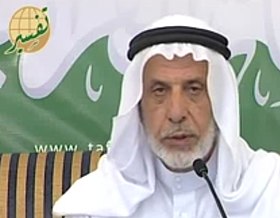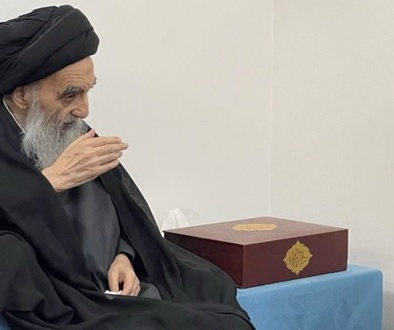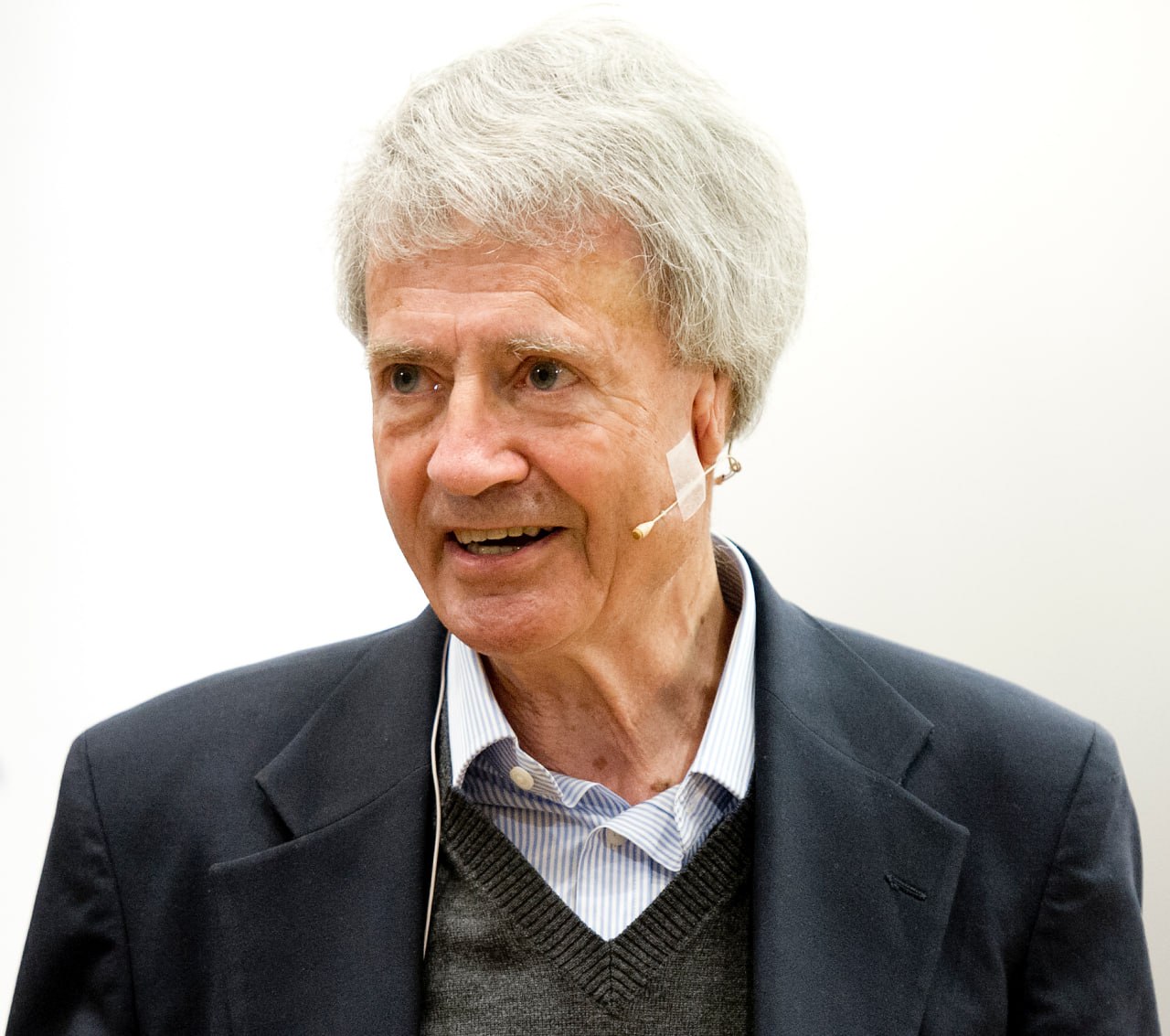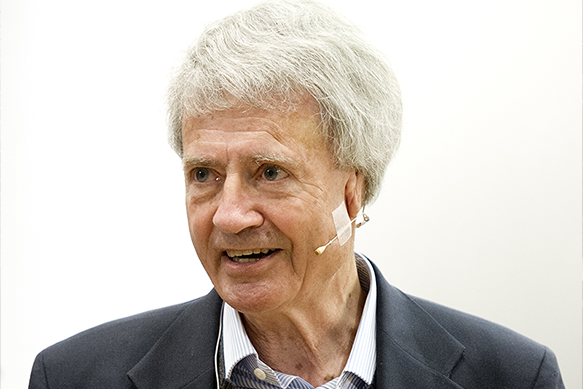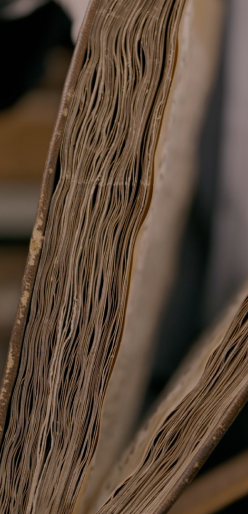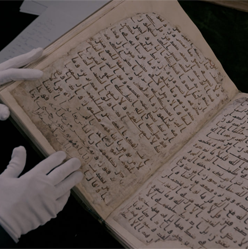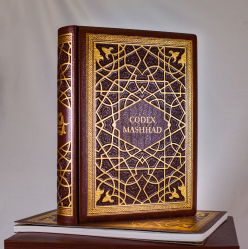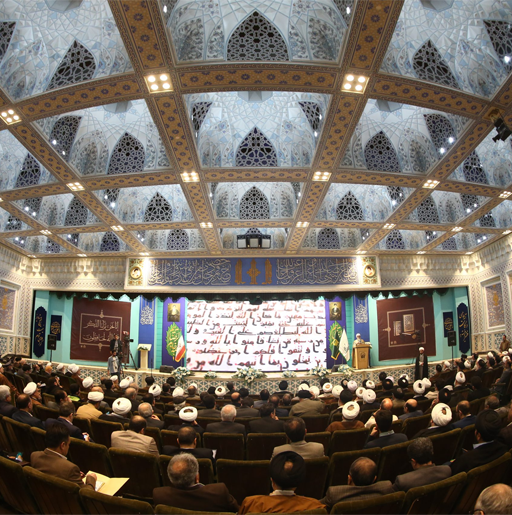

“Codex Mashhad” is a radically unique case among early Qurʾānic manuscripts. It consists of two ancient Qurʾānic manuscripts numbered 18 and 4116 held at the Āstān-i Quds Library in Mashhad, Iran. Written in the early ḥijāzī script, the codex comprises 252 folios containing over 95% of the Qurʾānic text. This makes it the most substantial surviving manuscript leaves from a complete Qurʾān dating to the earliest period of Islam.
Drawing upon multiple scholarly methods, including paleographic scrutiny, orthographic examination, and radiocarbon dating, it has been credibly established that the main body of this codex was scribed in the first Islamic century. Its comprehensive representation of the Qurʾānic corpus thus makes Codex Mashhad a landmark primary source for understanding Islam’s foundational scripture.
“Codex Mashhad” is a radically unique case among early Qurʾānic manuscripts. It consists of two ancient Qurʾānic manuscripts numbered 18 and 4116 held at the Āstān-i Quds Library in Mashhad, Iran. Written in the early ḥijāzī script, the codex comprises 252 folios containing over 95% of the Qurʾānic text. This makes it the most substantial surviving manuscript leaves from a complete Qurʾān dating to the earliest period of Islam.
Drawing upon multiple scholarly methods, including paleographic scrutiny, orthographic examination, and radiocarbon dating, it has been credibly established that the main body of this codex was scribed in the first Islamic century.
Its comprehensive representation of the Qurʾānic corpus thus makes Codex Mashhad a landmark primary source for understanding Islam’s foundational scripture.
Codicology
Codicology
Chronology
Original Production of the Manuscript in Madīna or Kūfa
The overall textual features in Codex Mashhad indicate its likely transcription in Madīna, though its arrangement of sūras follows Ibn Masʿūd’s tradition in Kūfa. The orthographic and paleographic analysis, along with radiocarbon dating tests, indicate that this codex belongs to the second half of the first Islamic century.

Probable Presence of the Codex in Kūfa
According to historical reports, many codices whose arrangement of sūras followed Ibn Masʿūd’s tradition were commonly circulating in Kūfa. Ibn Masʿūd’s students in Qur’ān, and their later generations, had a vibrant presence in Kūfa for at least two centuries.

Rearrangement of Sūras in Iraq or Iran
As the official presentations of the Qur’ānic text came to follow the ʿUthmānic version throughout the Islamic world in subsequent centuries, the arrangement of sūras in Codex Mashhad was reconstructed to align with the canonical sequence.

Presence of the Codex in Nīshāpūr
From the early Islamic centuries on, Nīshāpūr held political, cultural and academic prominence. Evidence for this includes Imām al-Riḍā’s passing through and the narration there of the silsilat al-ḏahab (سلسلة الذهب) tradition, indicating an abundance of hadith scholars in late 2nd/8th century Nīshāpūr. As different schools were established and scholars from various Islamic legal schools made their presence felt, the city significantly increased in scholarly and historical standing from the 3rd –5th centuries AH.

Ownership by al-Muqriʾ al-Sarawī
Evidence from the deed of endowment and other pages indicates that in the late 5th century AH, this codex was owned by one of the Qur’ānic reciters from Nīshāpūr named ʿAlī ibn Abi al-Qāsim al-Muqriʾ al-Sarawī, who ultimately endowed it to the Shrine of Imām al-Riḍā.

Recopying of Sūrat al-Fātiḥah by Wājih al-Shaḥḥāmī
A notation at the end of Sūrat al-Fātiḥah indicates that one of the Shāfiʿī jurists in Nīshāpūr, Wajīh ibn Ṭāhir al-Shaḥḥāmī (d. 541 AH), recopied the text of the sūra at the beginning of the codex.

Endowment of the Codex to the Shrine of Imām al-Riḍā
From the waqf deed at the beginning of MS 18, repeated at the end of Sūrat al-Kahf in the donor’s handwriting, it is understood that this work was endowed in two separate volumes to the Shrine of Imām al-Riḍā in the late 5th or early 6th century AH.

Siege of Mashhad by the Uzbeks and Concealment of Qur’ānic Codices
During the Safavid era, Khurāsān faced repeated raids by the Uzbek rulers of Marv. Mashhad was besieged and occupied at times. It is strongly believed custodians hid valuable objects within the shrine walls to prevent looting during such assaults.

Restoration of the First Part of the Codex (MS 18)
The first part of Codex Mashhad has survived with its original binding from the time of endowment. However, due to damage on the edges of parchment leaves, this manuscript was repaired in the Qajar era by covering the edges with paper strips secured with a natural adhesive.

Discovery of Hidden Qurʾānic Leaves in the Mausoleum Walls (including MS 4116)
During reconstruction and development works around the Mausoleum of Imām al-Riḍā in 1348 SH, many valuable Islamic works, including abundant Qurʾānic leaves that had been concealed behind the walls in previous centuries, were discovered.

Repairs to the Second Part of the Codex (MS 4116)
The scattered pages recovered from the second part of Codex Mashhad were mended and rebound in 1390 SH by Ahmad Talebiyan in the Conservation Division of the Āstān-i Quds-i Rażavī Library.

Discovery of Codex Mashhad’s Significance
During his studies on early Qurʾānic manuscripts in Iranian museums and libraries, Morteza Karimi-Nia first identified the first part of Codex Mashhad (MS 18) in 1393 SH as the sole ancient ḥijāzī-style Qurʾān in Iran. He later discovered the second part, MS 4116, in the same library. By linking the two manuscripts, he designated their collection as “Codex Mashhad.”

Scrutiny of the Full Contents of MSs 18 and 4116
The Al al-Bayt Islamic Heritage Institute was entrusted with conducting a comprehensive examination of manuscripts 18 and 4116 and producing a facsimile edition of Codex Mashhad along with a detailed introduction. Transcription and analysis of all pages was finished by 1400 SH. During this period, findings on this significant historical work were presented in scholarly journals and conferences internationally.

Publication of the Facsimile Edition
The process of releasing a high-quality facsimile of Codex Mashhad, including digitization of both manuscripts, image editing, graphic design, proper pagination, printing, binding, framing, and casing the codex and introduction, was carried out from Shahrivar 1400 SH to Shahrivar 1402 SH.

مصحف المشهد الرضوي
تعليق كتبه الدكتور غانم قدوري الحمد رئيس جامعة تكريت سابقا، وكاتب في علوم القرآن والتجويد، وباحث في دراسة المصاحف القديمة بسم الله الرحمن الرحيم مصحف المشهد الرضوي أَطْلَعَنِي الدكتور مرتضى كريمي على عمله في نشر (مصحف المشهد الرضوي) المحفوظ في مكتبة العتبة الرضوية في مشهد، وأهداني نسخة من المصحف، جزاه الله تعالى خيراً، ويأتي […]
On Codex Mashhad
François Déroche Collège de France, Paris In the growing field of research on the early handwritten transmission of the Qurʾānic text, the edition of Codex Mashhad by Dr. Morteza Karimi-Nia is without doubt a major achievement. The manuscripts which are dated to the second half of the first/seventh and early second/eighth centuries provide direct […]
Codex Mashhad Presented to Grand Ayatollah Sistani
His Eminence Appreciated the Research and Publication
Facsimile Edition
Facsimile reproduction, a modern technique for replicating ancient manuscripts, aims to produce an output maximally resembling the original. This facilitates comparative codicological investigation by interested scholars unable to access the primary source directly.
The facsimile edition of Codex Mashhad offers unprecedented codicological, textual and historical insights, illuminating this prized manuscript from word to word and verse to verse. High quality imaging, refined printing on matte paper, color design and management, and unique bookbinding, framing and finishing distinguish this landmark facsimile.
Facsimile Edition
Facsimile reproduction, a modern technique for replicating ancient manuscripts, aims to produce an output maximally resembling the original. This facilitates comparative codicological investigation by interested scholars unable to access the primary source directly.
The facsimile edition of Codex Mashhad offers unprecedented codicological, textual and historical insights, illuminating this prized manuscript from word to word and verse to verse. High quality imaging, refined printing on matte paper, color design and management, and unique bookbinding, framing and finishing distinguish this landmark facsimile.












